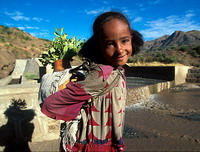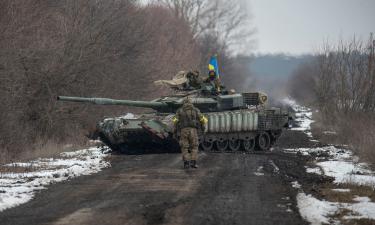Eastern Ethiopian region of Ogaden to have freedom of movement and more aid agencies
The eastern Ethiopian region of Ogaden will get freedom of movement and more aid agencies.

John Holmes, the U.N.'s humanitarian chief, visited the remote region Tuesday. In recent months, Ethiopia has expelled the International Committee of the Red Cross and the Dutch branch of Medecins Sans Frontieres from Ogaden. But in recent weeks the government has allowed 19 non-governmental organizations to return to work in the Ogaden, where the rebel Ogaden National Liberation Front attacked a Chinese-run oil exploration field in April, killing 74 people.
In May, the Ethiopian military began counterinsurgency operations, hurting commercial trade and making it difficult to deliver food aid. The rebels, along with several aid and human rights groups, say the military has burned villages and blocked aid and trade into the region. The government denies those accusations.
Holmes said the situation was difficult to assess, but urged local officials to remove transportation barriers and increase the number of non-governmental organizations in the region to 40.
"My impression is it's better than it was," he said. "If there was freedom to move and to trade and to buy and to sell there really wouldn't be a problem."
But, he added, "you can only learn a limited amount from a short visit, obviously. But there is clearly a risk of a serious humanitarian situation here .... We need to make a difference in the next three months."
In the town of Kebridehar, there are signs humanitarian aid was getting through and having a positive effect.
Women thronged a bustling food distribution point, joyfully lugging sacks of wheat and cans of oil to their homes.
"There was some malnutrition before the food distribution, but now we're OK," said Nasra Nadif, 42, a mother of eight. She attributed the lack of food to poor rains in recent months.
Abdi Gani Yusuf, the head of security for the zone, said the government had caught 250 Ogaden National Liberation Front fighters in the past six months. He did not say where the fighters were held.
"These days the security situation is very calm," he said. "There are no security problems these days."
In the zone's only major hospital - a decrepit place with sagging and broken beds - a few patients lounged listlessly in the midday heat. The pharmacy shelves were empty, though Dr. Dereje Seyoum said the hospital's supplies had not been affected by recent transportation prohibitions.
The ONLF is fighting to overthrow the government for what it says are human rights abuses and to establish greater autonomy in a region being heavily explored for oil and gas. The government accuses the rebels of being terrorists funded by its archenemy Eritrea.
Subscribe to Pravda.Ru Telegram channel, Facebook, RSS!




